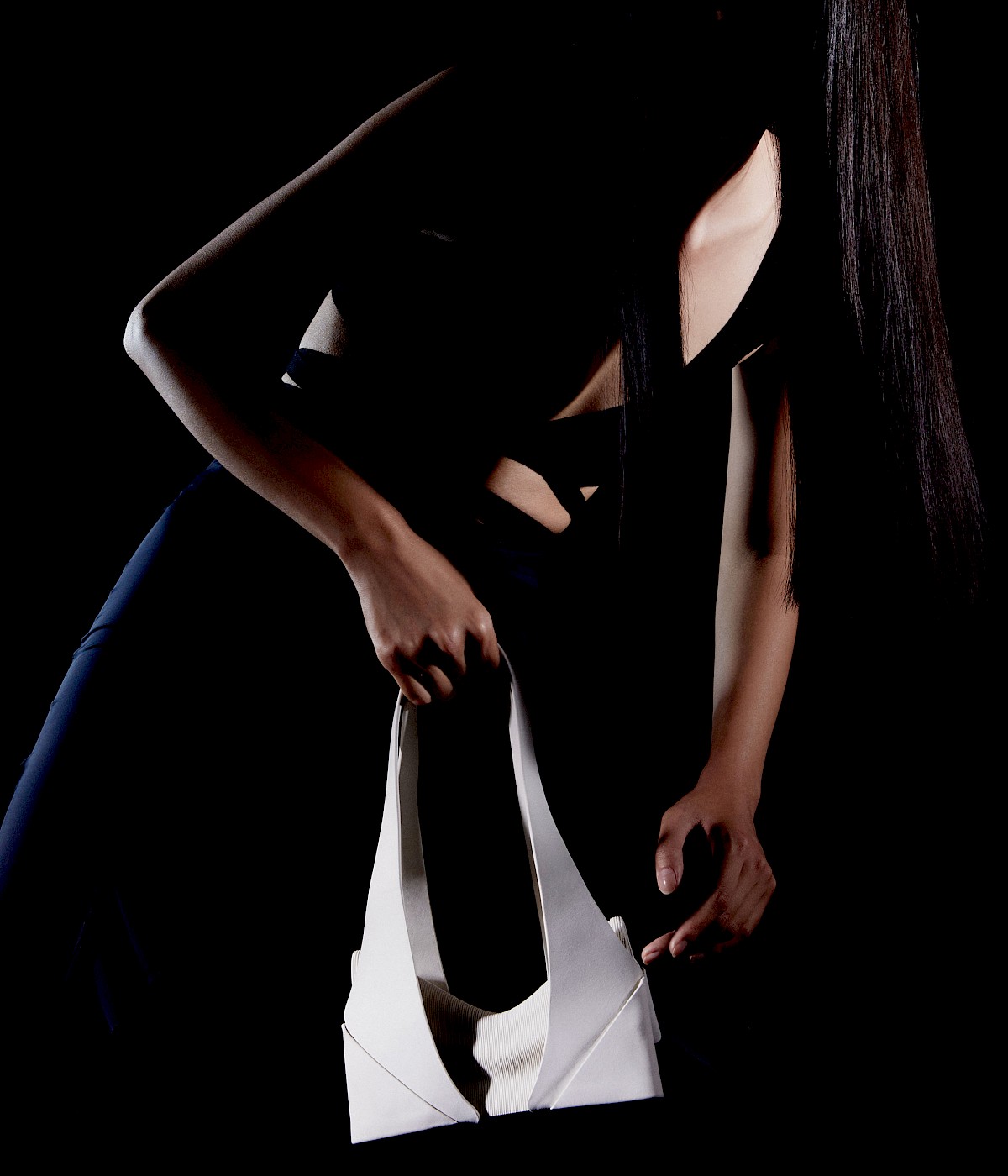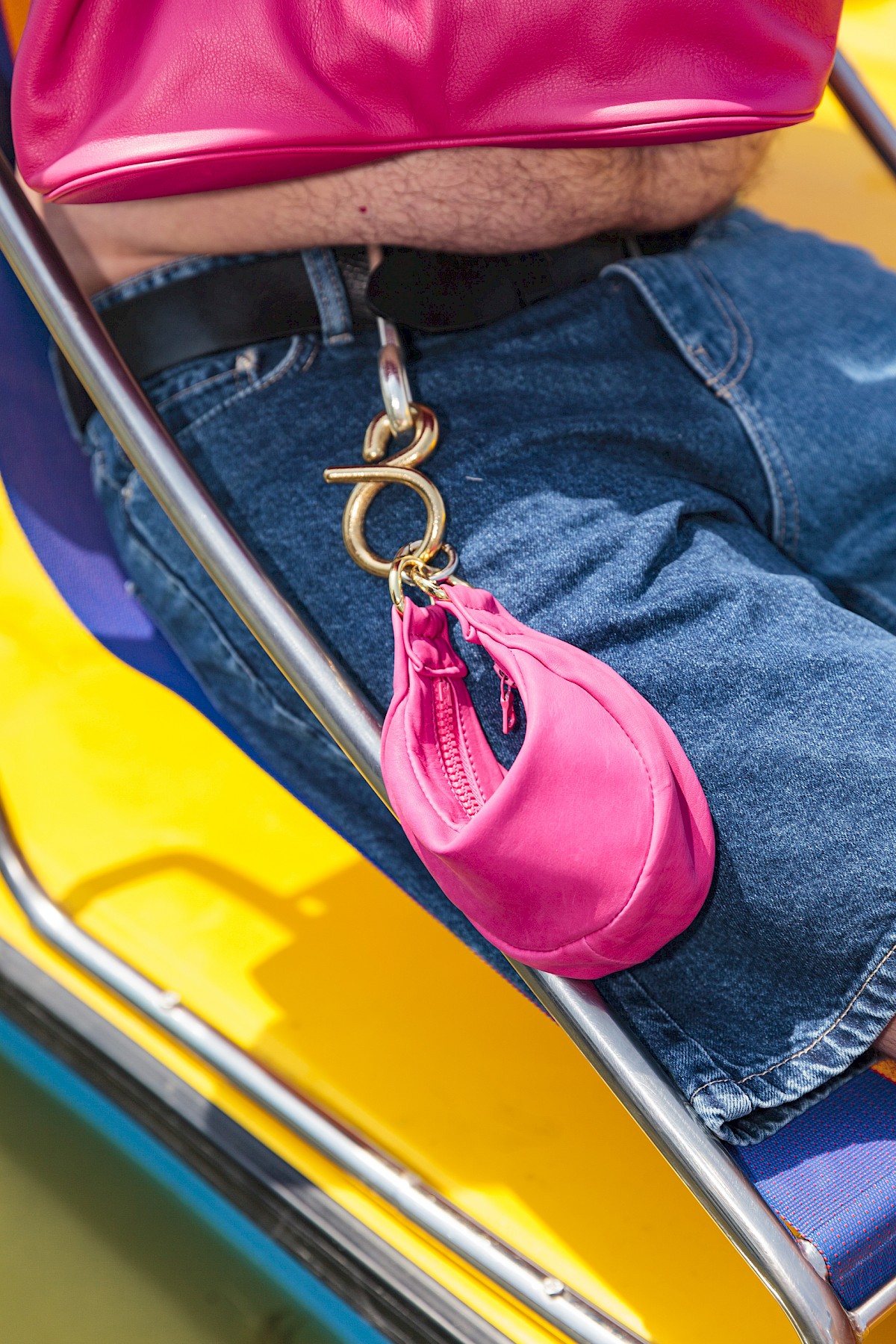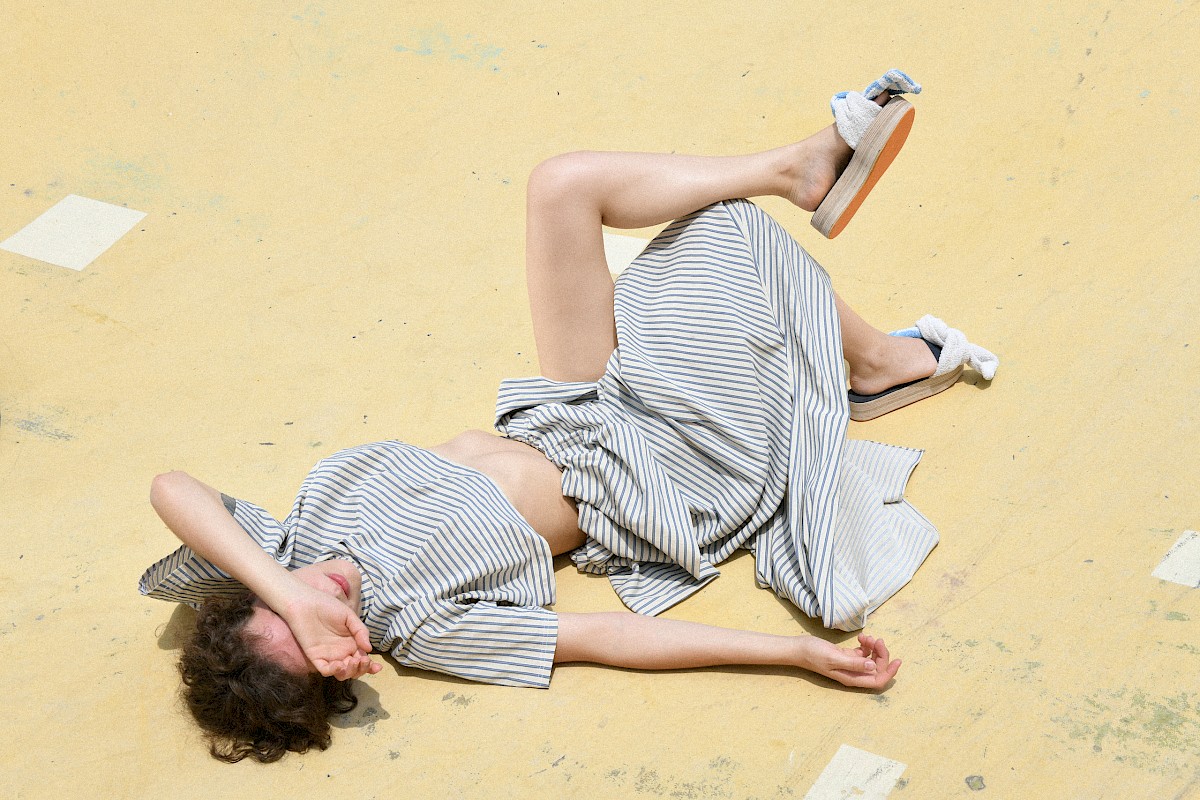Collection de Master
L’objectif du premier semestre est de faire progresser la conceptualisation du projet de master en expérimentant et en approfondissant la recherche dans chaque domaine. Les étudiant·e·x·s acquièrent des compétences créatives, analytiques et méthodologiques, pertinentes à la réalisation de leur collection de master, ainsi qu’à leur parcours professionnel futur. Iels posent des bases stables sur lesquelles construire leur projet de master avec un maximum de liberté au cours du second semestre. Les étudiant·e·x·s explorent leurs intentions artistiques et définissent leur vision. La prise de conscience de leurs processus créatifs individuels et du potentiel de diverses méthodes est encouragée afin de soutenir les étudiant·e·x·s dans leurs compétences artistiques. L’application et l’expérimentation de différentes méthodes de travail, tant intuitives qu’analytiques, constituent une partie importante du premier semestre du MA2.
Les différentes méthodes s’influencent mutuellement dans un flux circulaire tout au long du processus créatif. Chacune d’entre elles doit bénéficier d’un espace et d’un temps bien définis. Nous encourageons et pratiquons des méthodes de création libre, d’expérimentation et d’intuition ainsi que des méthodes d’observation et d’analyse, de formulation, d’identification, d’élaboration et de contextualisation.
Afin d’articuler, de présenter, de débattre, de critiquer et de mettre en perspective leur propre travail, les étudiant·e·x·s ont accès à de multiples formes de soutien : atelier et mentorat introduisant l’expérimentation libre, le sprint-design, la recherche, l’agencement et l’édition ; conversations individuelles et discussions en groupes de pairs ; essayages : conceptions directes sur un corps en mouvement en dialogue avec des expert·e·x·s techniques.
Master Collection
The objective of the first semester is to advance the conceptualisation of the master project by experimenting and deepening the research into each field. Students train creative, analytic and methodological skills, which are relevant for the realisation of their master collection and their future professional path. They lay a stable foundation to construct their master project with maximum freedom during the second semester of the final year. Students explore their artistic intentions and define their unique vision. The awareness of one’s creative processes and the potential of diverse methods are encouraged to support the students’ confidence in their artistic skills. Applying and testing different intuitive and analytical working methods are an essential part of the first semester of the MA2.
Various methods influence each other in a circular flow along the creative process. We encourage and practise forms of free creation, experiment and intuition, methods of observation and analysis, formulation, identification, elaboration and contextualisation. All of them are granted a well-defined space and time.
To establish students’ ability to articulate, present, debate, critique, and put their work in perspective, students and tutors collaborate through different formats: workshops and mentoring that introduce students to experimentation, sprint-design, research, arranging and editing, resulting in their ability to articulate a vision through their collection; individual conversations and discussions in peer groups and fittings, designing directly on a body in movement and in dialogue with technical experts.
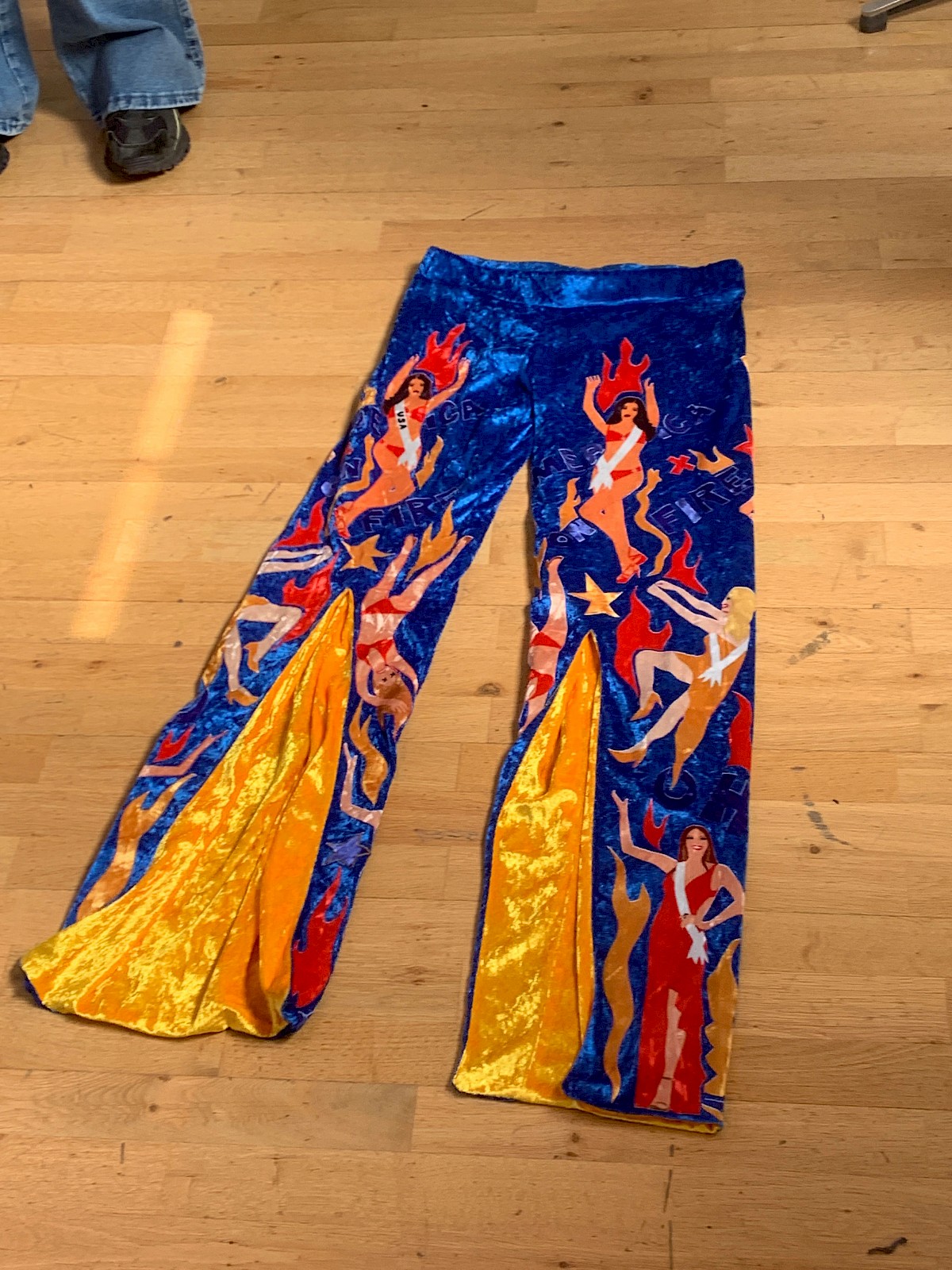
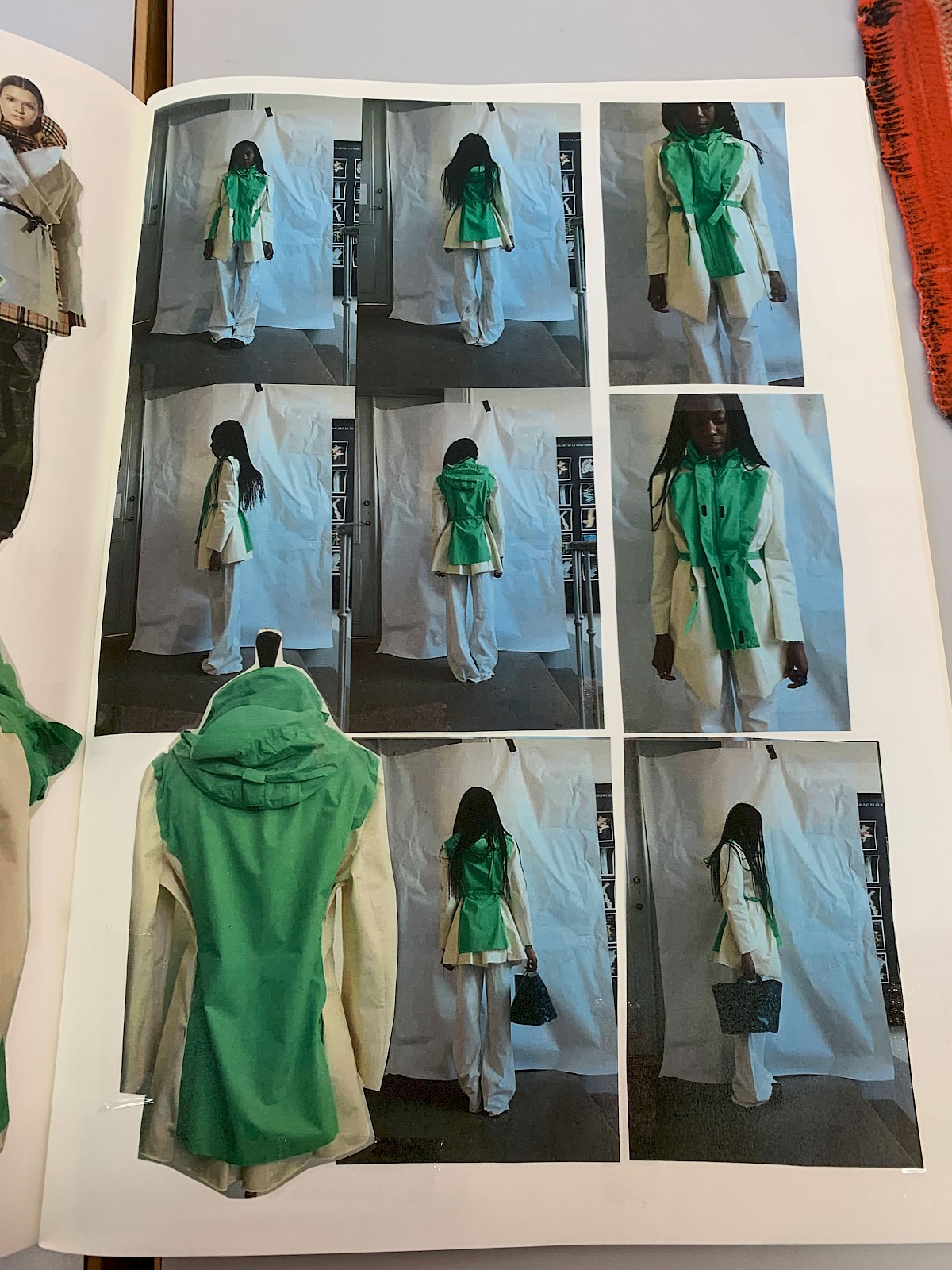
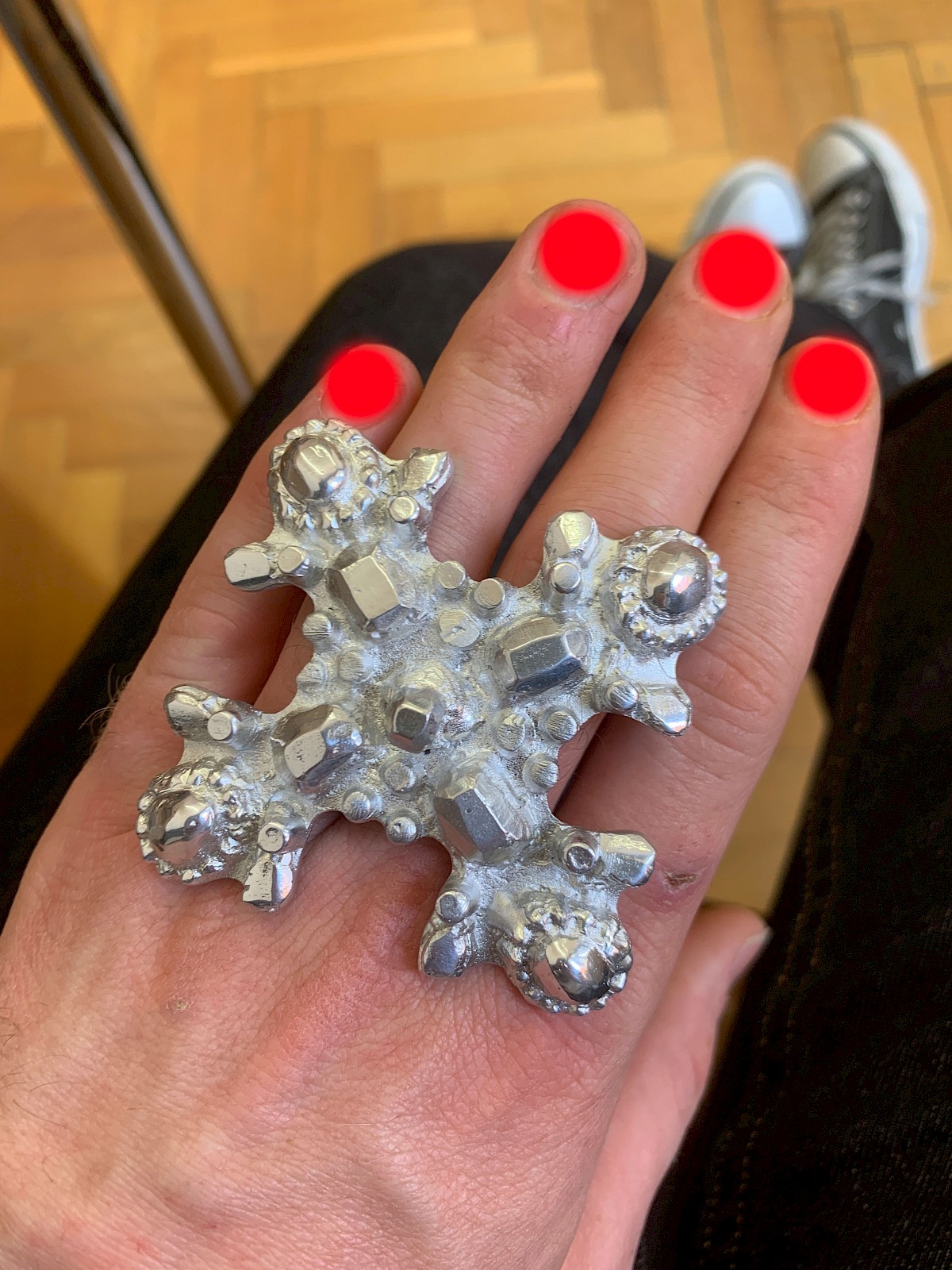
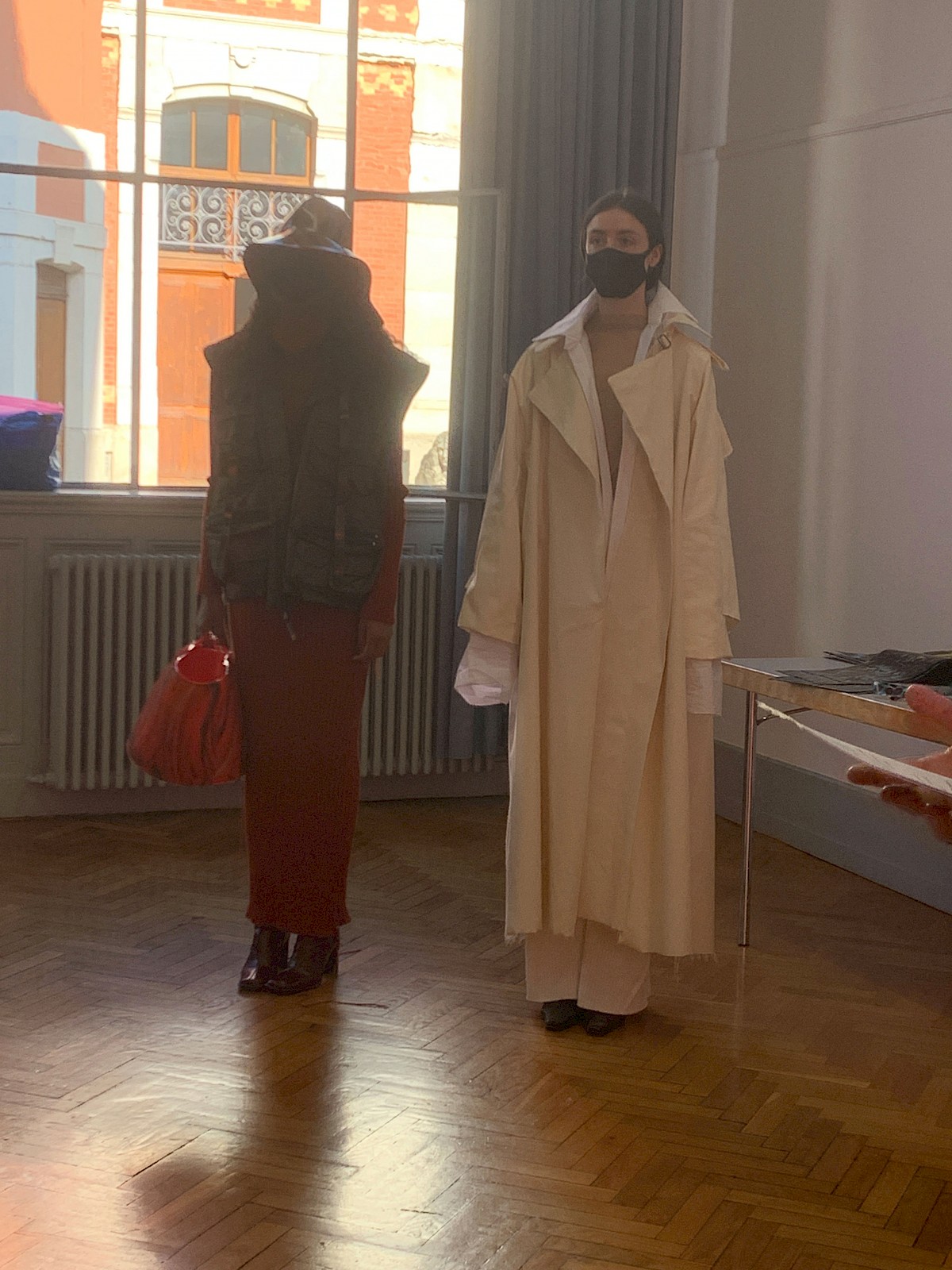
Recherches collections de Master
MA collection research
L’objectif du second semestre du MA2 est d’achever la conceptualisation et la réalisation du projet de master final, consistant en une collection, une déclaration, une documentation photographique ou vidéo et une présentation orale. En exploitant pleinement l’expérience acquise au cours des semestres précédents, les étudiant·e·x·s du master explorent leurs intentions artistiques et définissent leur vision créative. Un positionnement singulier fort est encouragé. La conscience du moment où il convient d’appliquer l’une ou l’autre des diverses méthodes doit être nourrie pour soutenir la confiance des étudiant·e·x·s en leurs compétences artistiques et en leur gestion du temps. Après avoir expérimenté au premier semestre, chaque étudiant·x·e se concentre sur la réalisation de sa collection. Les étudiant·e·x·s doivent concevoir et réaliser une présentation artistique de leur collection, avec l’aide d’expert·e·x·s externes en matière de stylisme, de set design, et de performance/chorégraphie. La documentation photographique ou vidéo est un élément essentiel : c’est un moyen de communication crucial de leur collection.
Afin d’articuler, de présenter, de débattre, de critiquer et de mettre en perspective leur propre travail, les étudiant·e·x·s ont accès à de multiples formes de soutien : atelier et mentorat introduisant l’expérimentation libre, le sprint-design, la recherche, l’agencement et l’édition, afin de les aider à concrétiser leurs visions ; conversations individuelles et discussions en groupes de pairs ; essayages : conceptions directes sur un corps en mouvement en dialogue avec des expert·e·x·s techniques.
The objective of the second semester is to complete the conceptualisation and realisation of the final master project, consisting of a collection, a statement, photographic or video documentation and a presentation. By fully exploiting their experience made in their studies so far, master students should explore their artistic intentions and define their unique vision. Strong singular positioning is encouraged, and the awareness of when to apply the diverse methods is encouraged to support the students’ confidence in their artistic skills and time management. After revising the experimental ideas of the first semester, each student focuses on an ambitious, result-driven realisation of their collection. Students shall conceive and realise an artistic presentation of their collection with the help of external experts in styling, space design and performance/choreography. Photographic or video documentation is an essential condensation and crucial communication of the final master creation.
To help students present and articulate their work orally and visually, edit their collections, debate their ideas critically and put their work in perspective, we collaborate through multiple formats: workshops which foster skills and progress on collection projects; tutoring sessions in person and conversations in peer groups; tittings to verify the head-to-toe impact of the creation on the body and in movement. In dialogue with technical experts, it is also the moment to correct construction and proportions regarding materialisation and further specify the design language through classic techniques or radical finishing solutions.
Sujets de Thésis Master 2021
- Mélissa Café, Le corps usiné, le corps fabriqué ;
- Mellie Chartres, Mode: états des lieux ;
- Sophie Fellay, Fashion as Bread and Butter:
Precarious Work in The Fashion Industry ; - Martin Guillet, Moi, Martin ;
- Celeste Hay, Black Phishing, White lies ;
- Julia Hernandez Figueroa, Bodies of Work ;
- Manon Melot, Mode et Nouvelle technologies ;
- Bérénice Noël, La Recluse: Réflexions sur une femme-objet et
on désir d’objets ; - Sandrine Joy Praz, C’est en disparaissant que j’apparais
par erreur ; - Victor Salinier, Design discursif, mode et lendemain ;
- Lora Sonney, Une aventure confinée ;
- Florian Henri Alexandre Wicki, Clémence, L’ombre du passé.
Master thesis topics 2021
- Mélissa Café, Le corps usiné, le corps fabriqué;
- Mellie Chartres, Mode: états des lieux;
- Sophie Fellay, Fashion as Bread and Butter:
Precarious Work in The Fashion Industry; - Martin Guillet, Moi, Martin;
- Celeste Hay, Black Phishing, White lies;
- Julia Hernandez Figueroa, Bodies of Work;
- Manon Melot, Mode et Nouvelle technologies;
- Bérénice Noël, La Recluse: Réflexions sur une femme-objet et
on désir d’objets; - Sandrine Joy Praz, C’est en disparaissant que j’apparais
par erreur; - Victor Salinier, Design Discursif, mode et lendemain;
- Lora Sonney, Une aventure confinée;
- Florian Henri Alexandre Wicki, Clémence, L’ombre du passé.
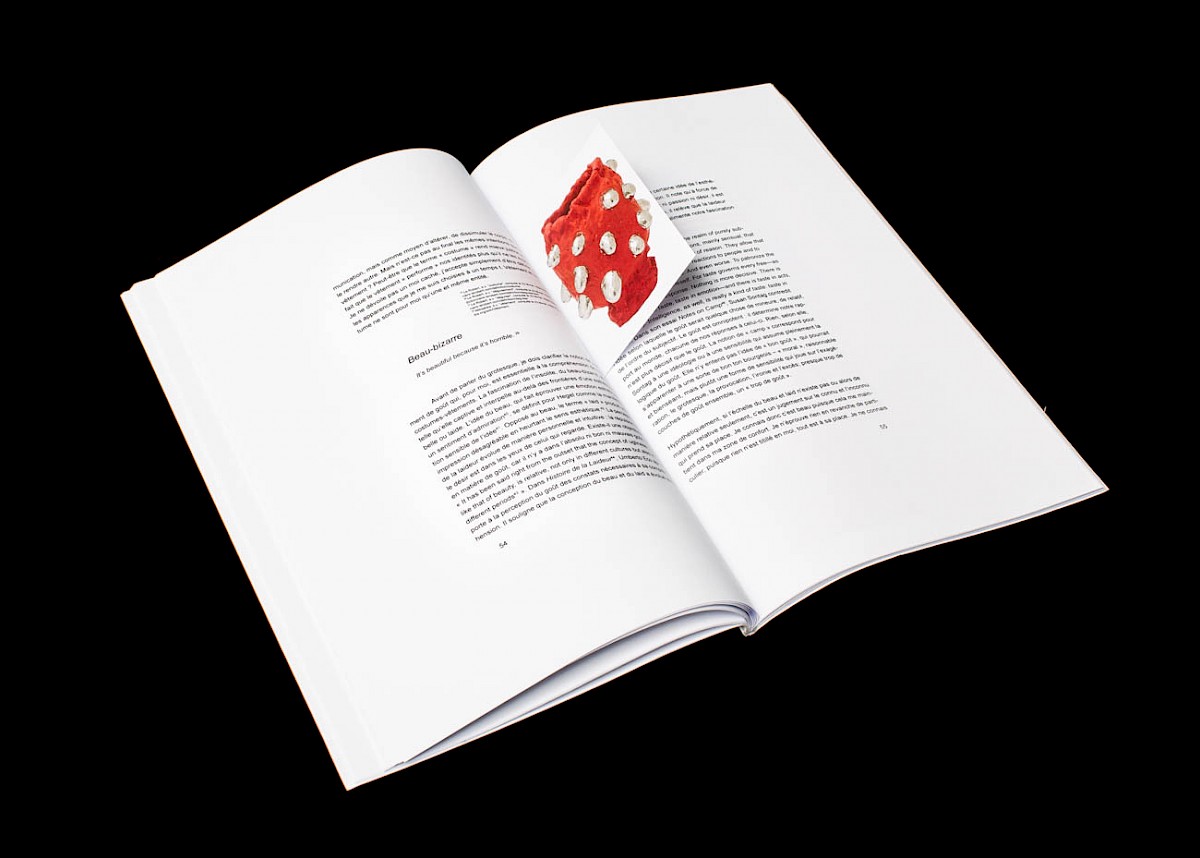

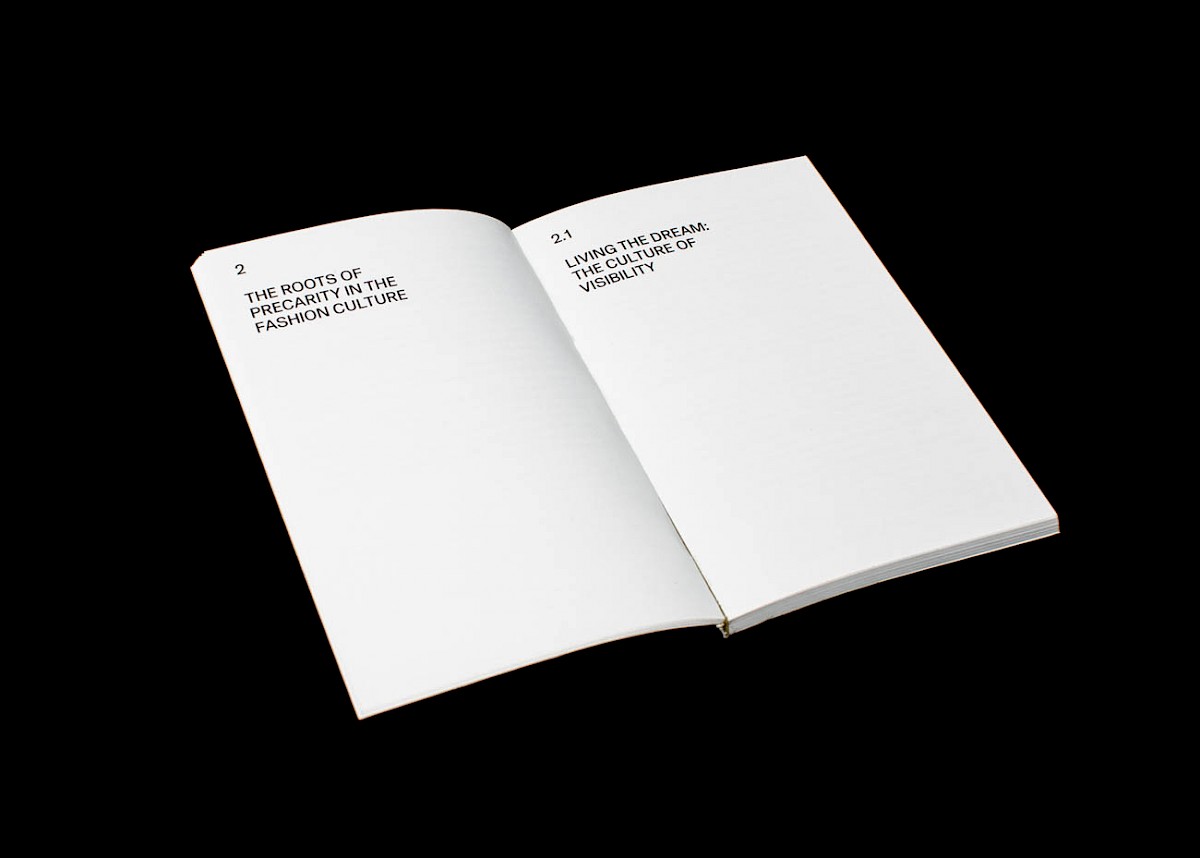
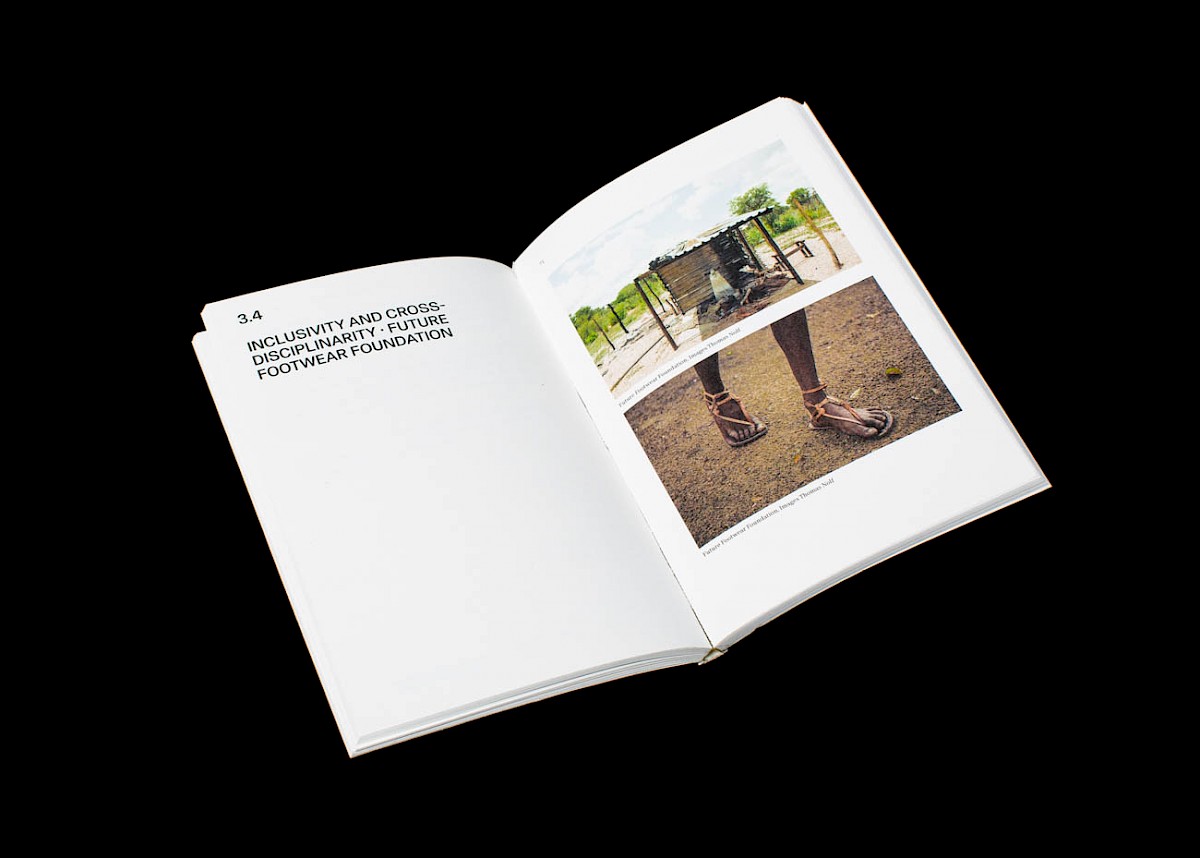
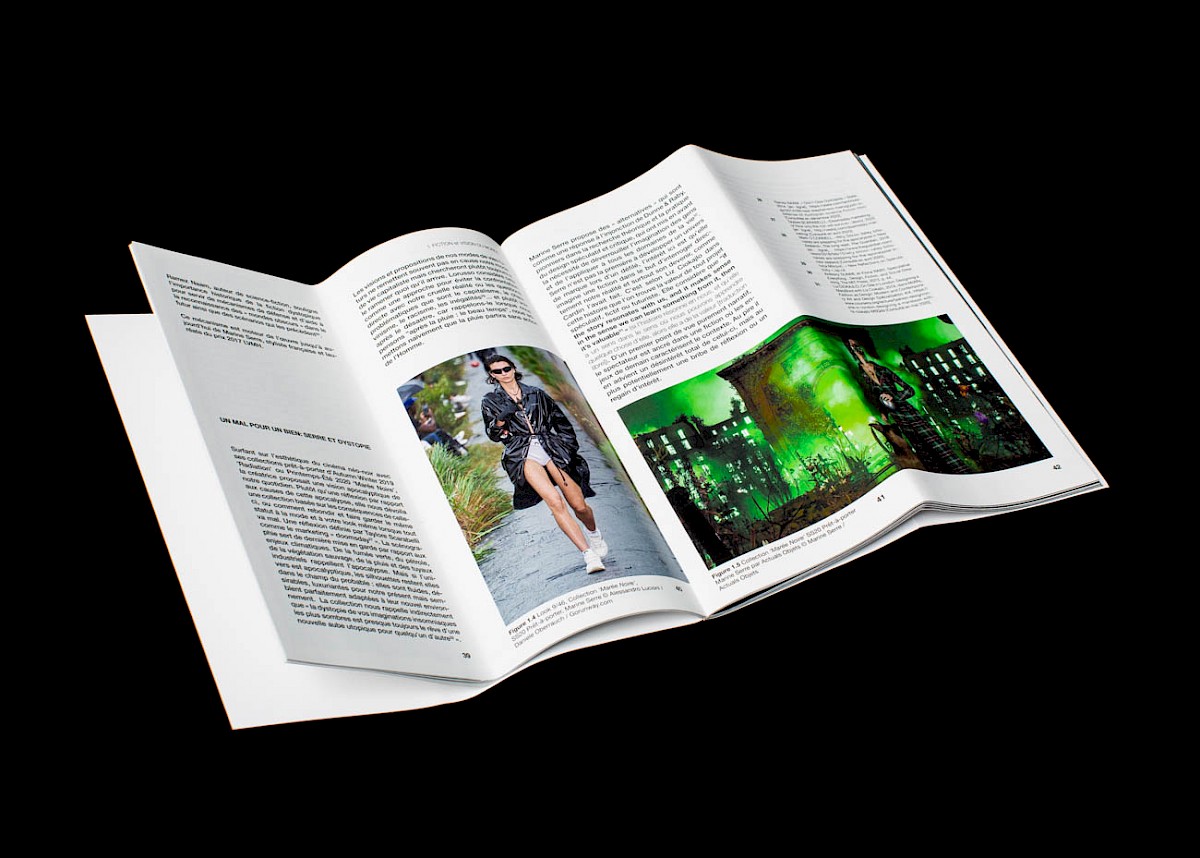
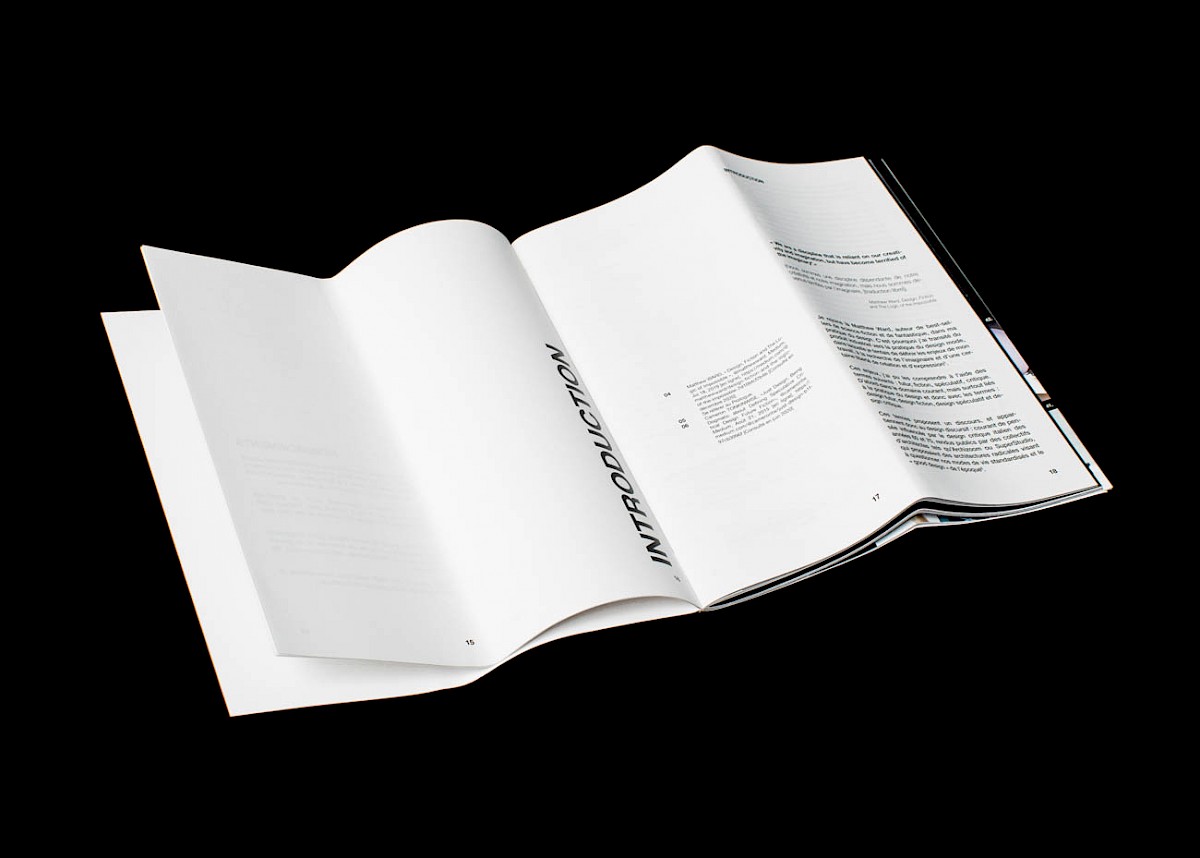
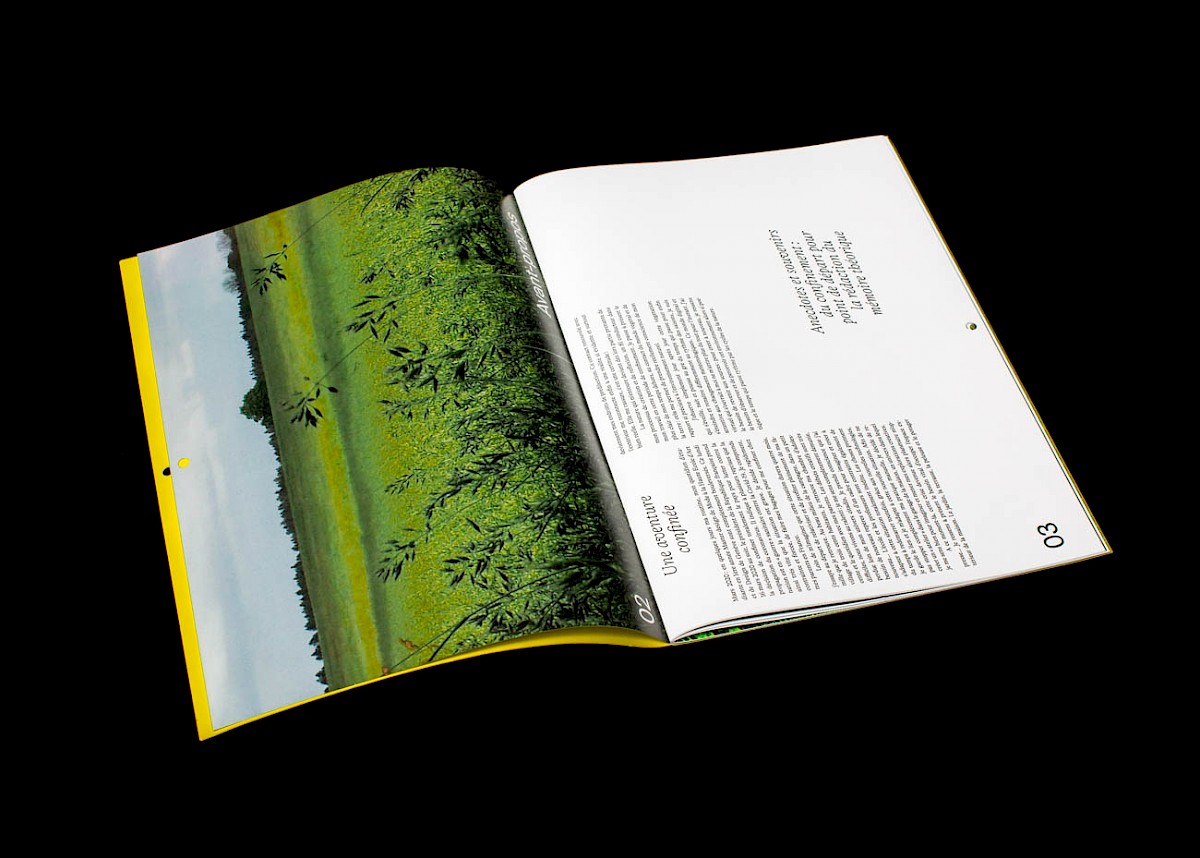
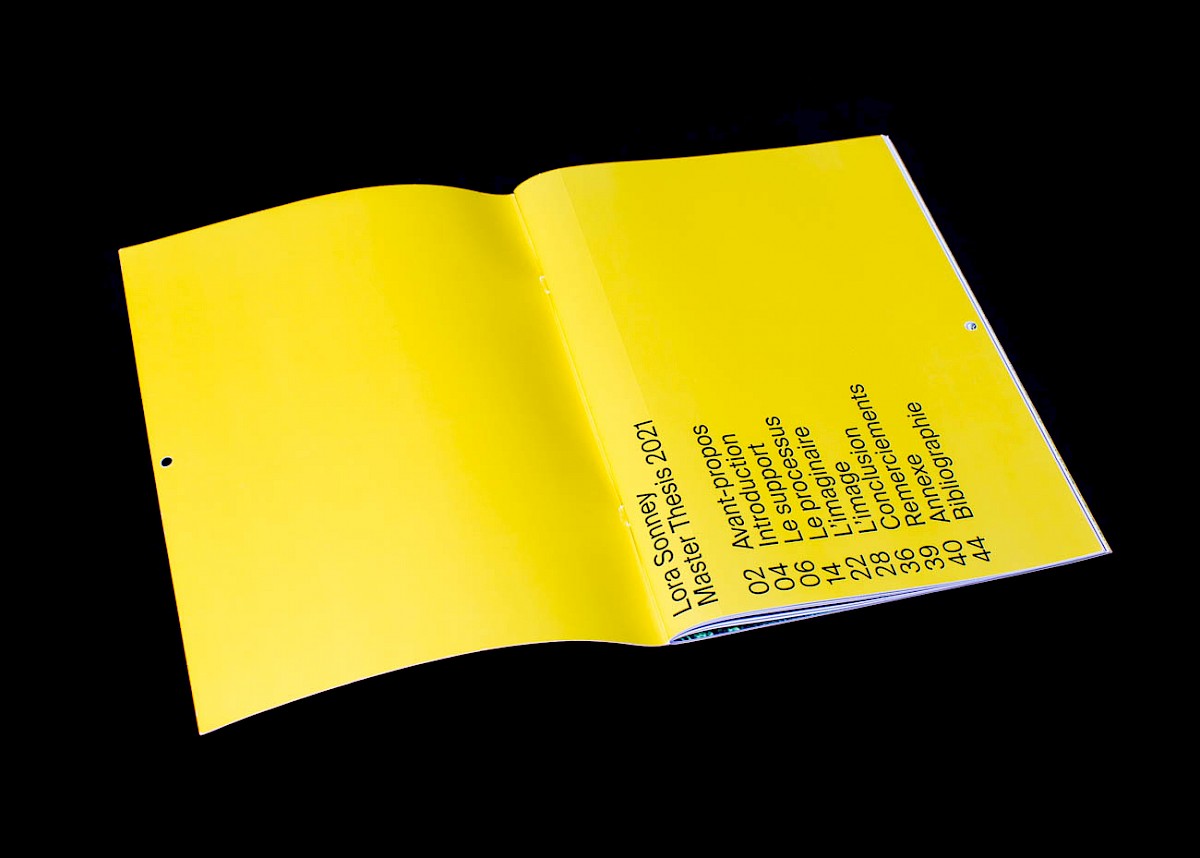
Thésis Master 2021
Master thesis 2021
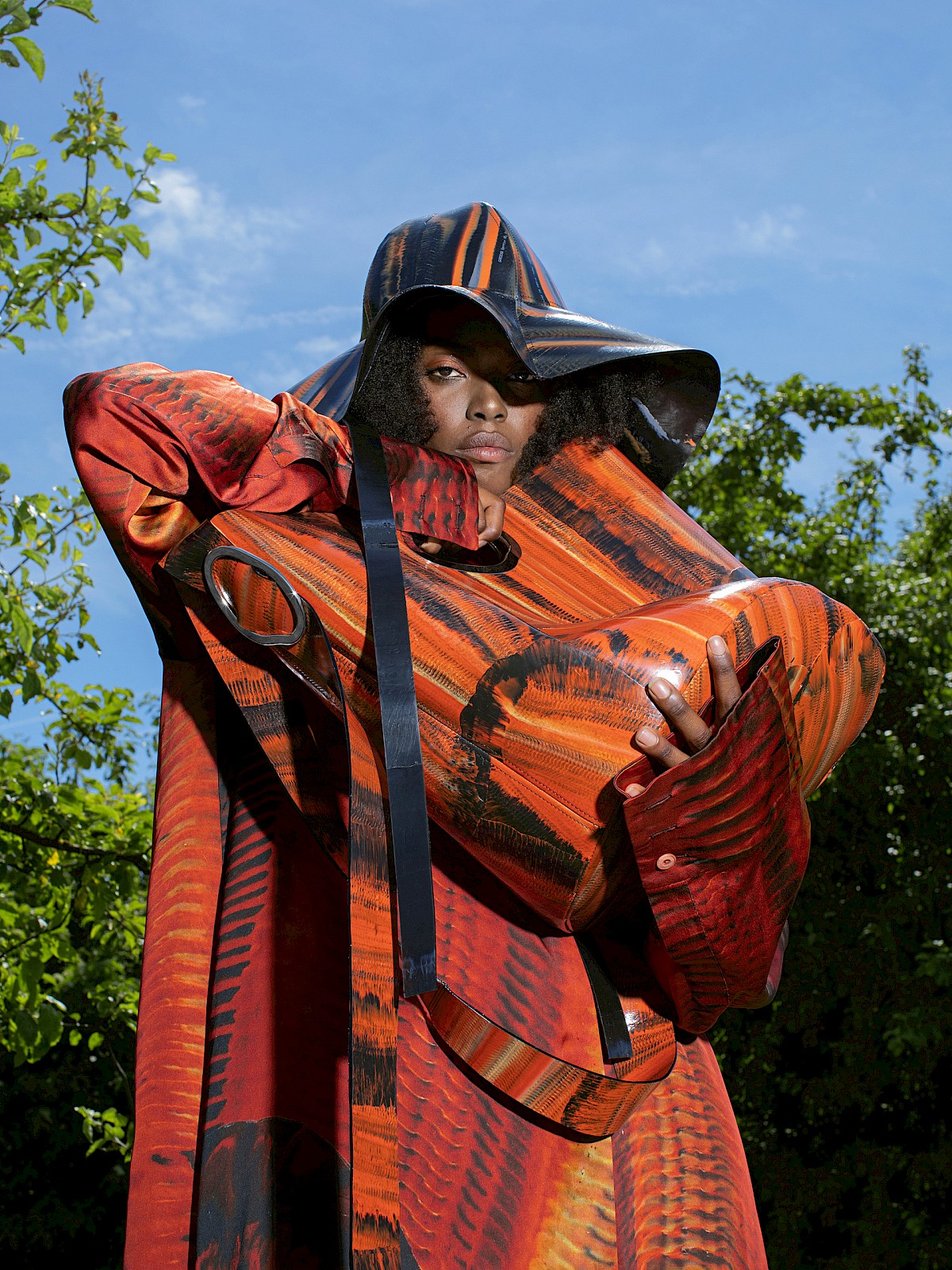
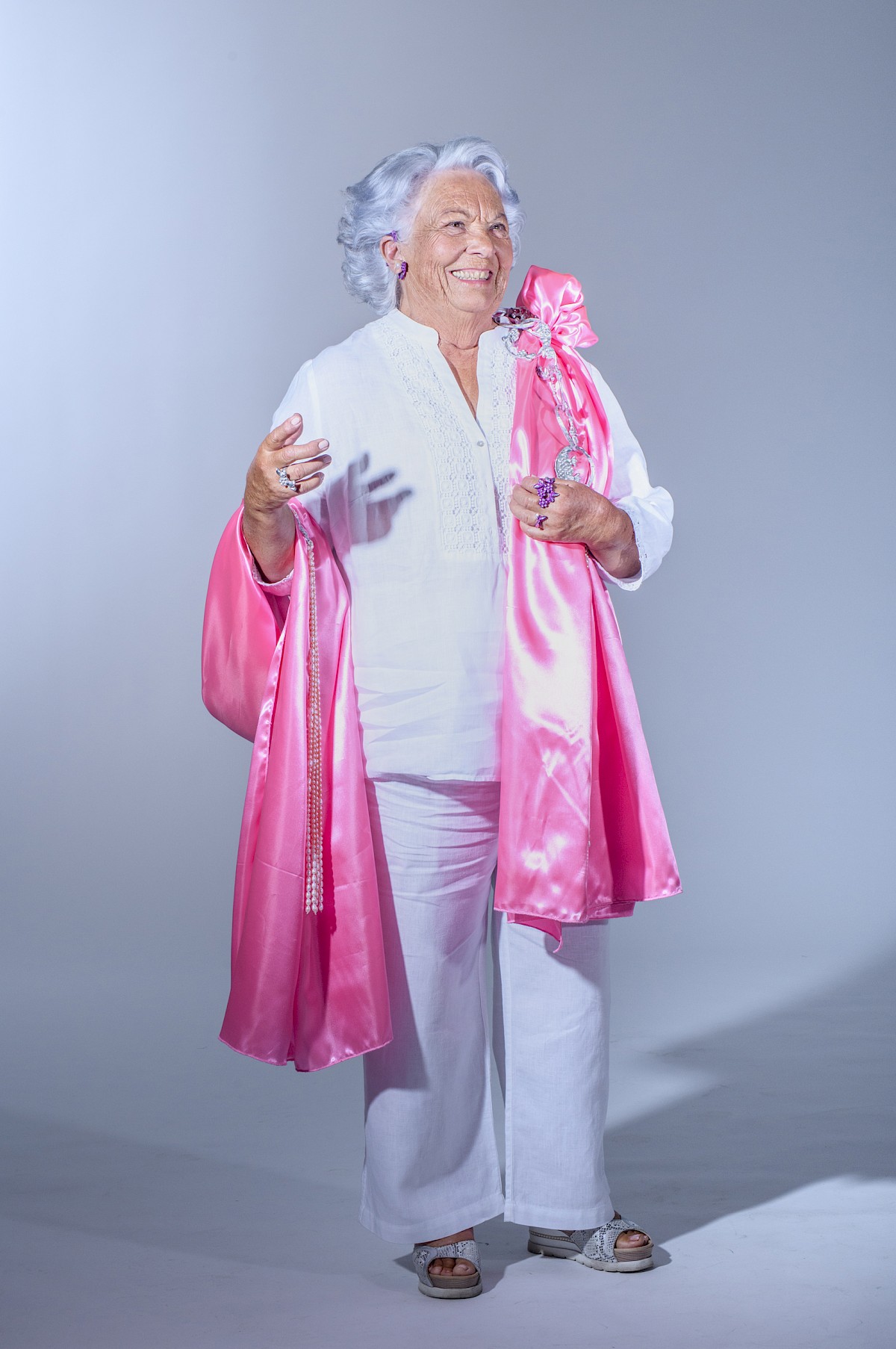
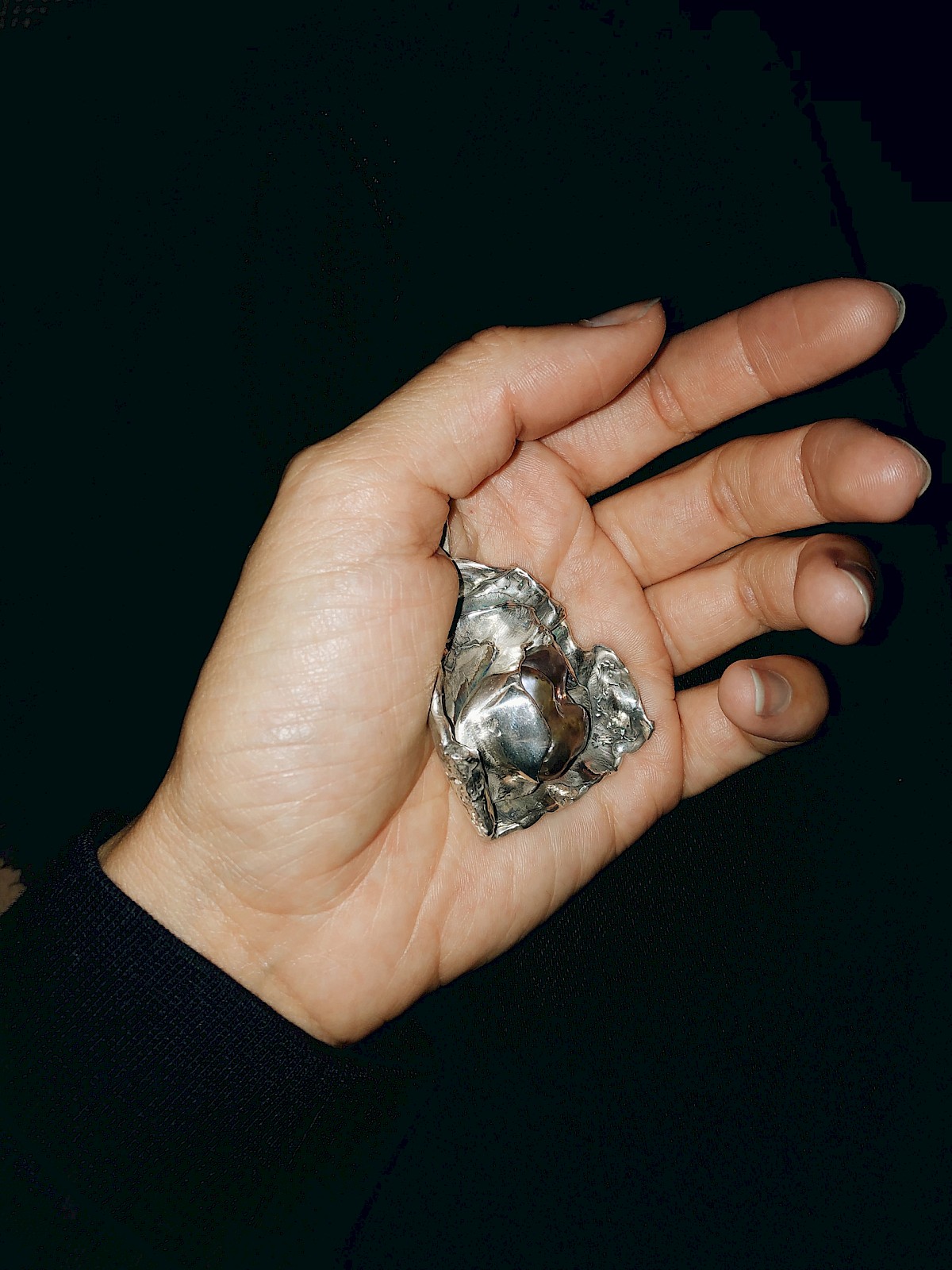
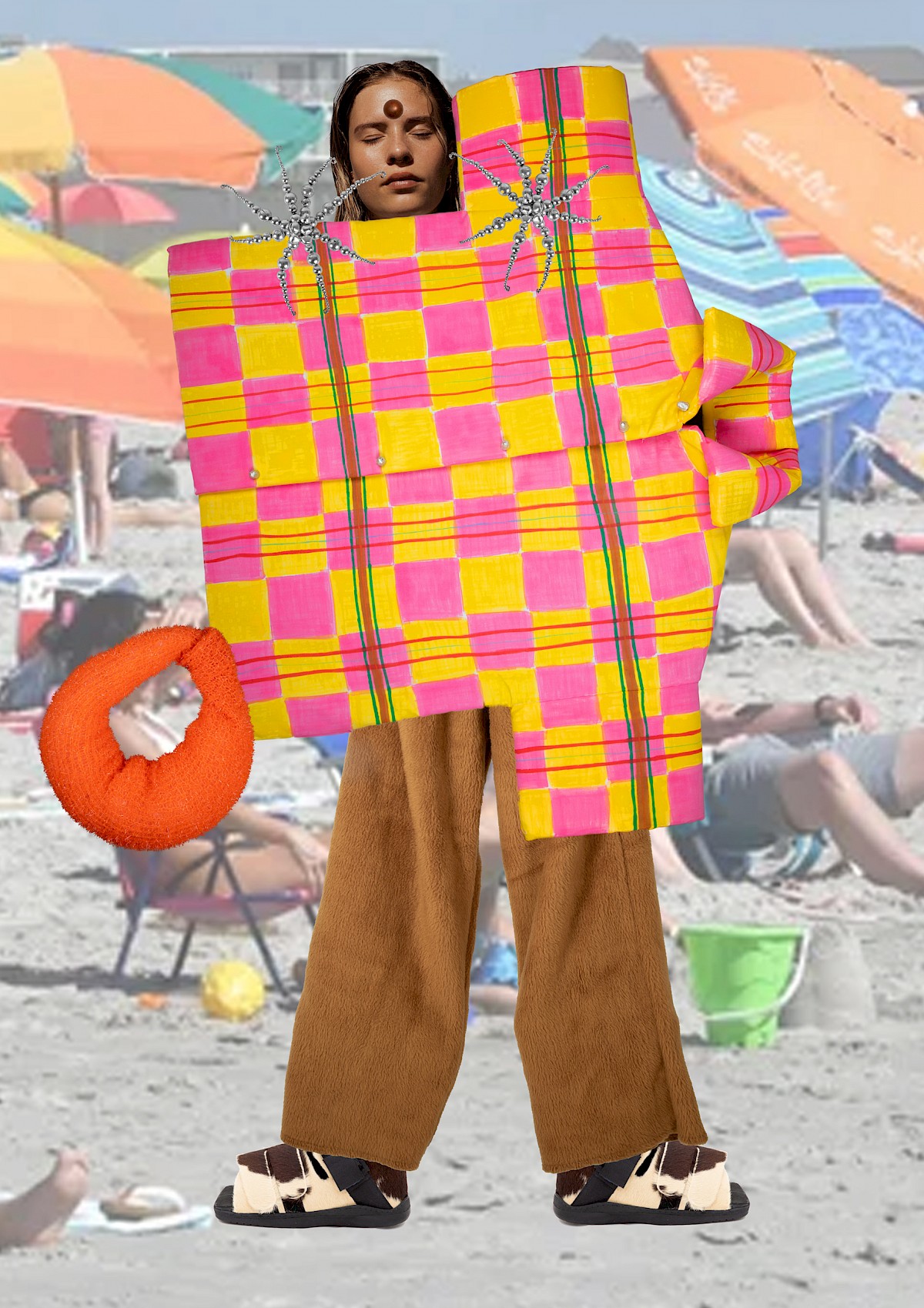
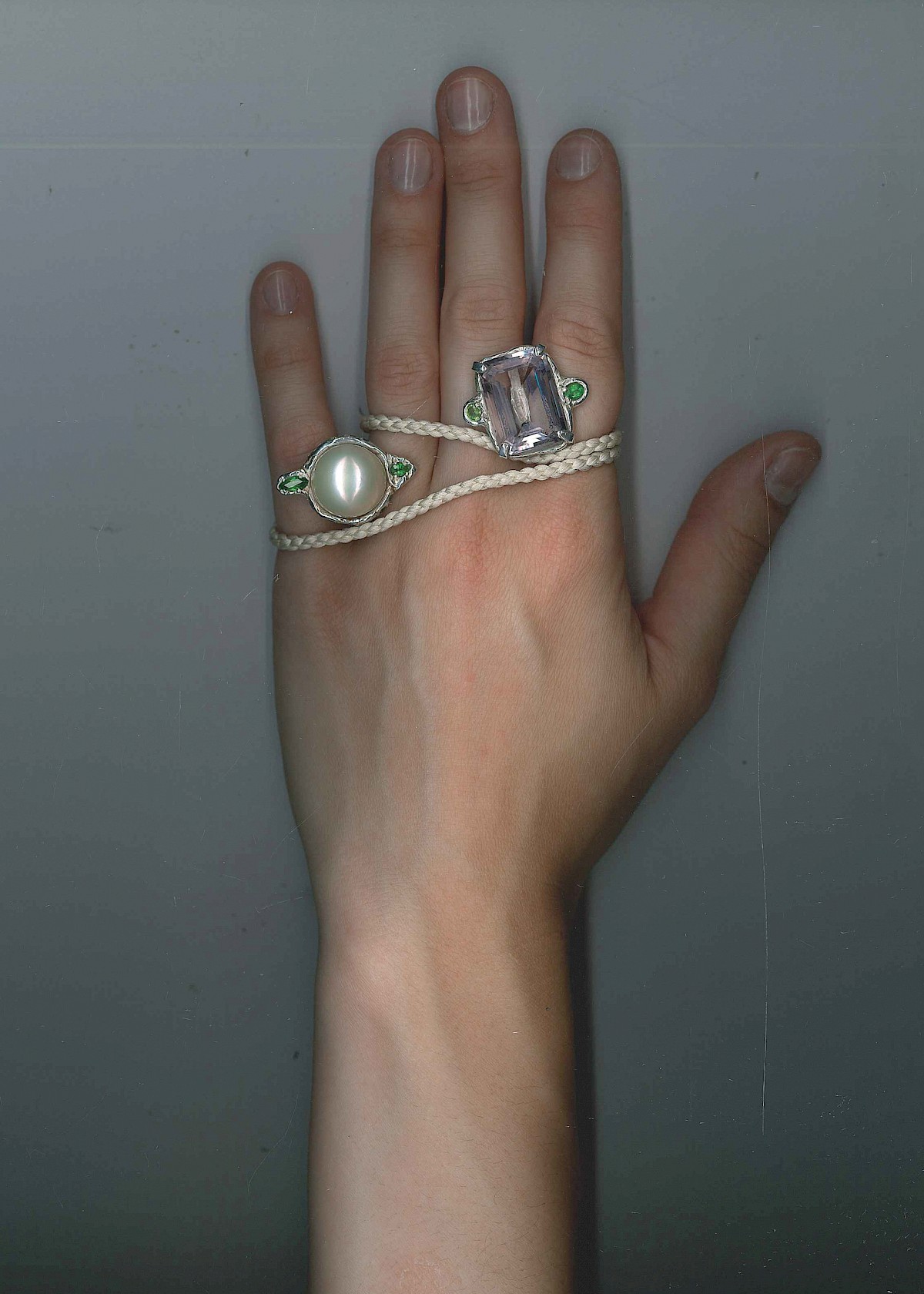
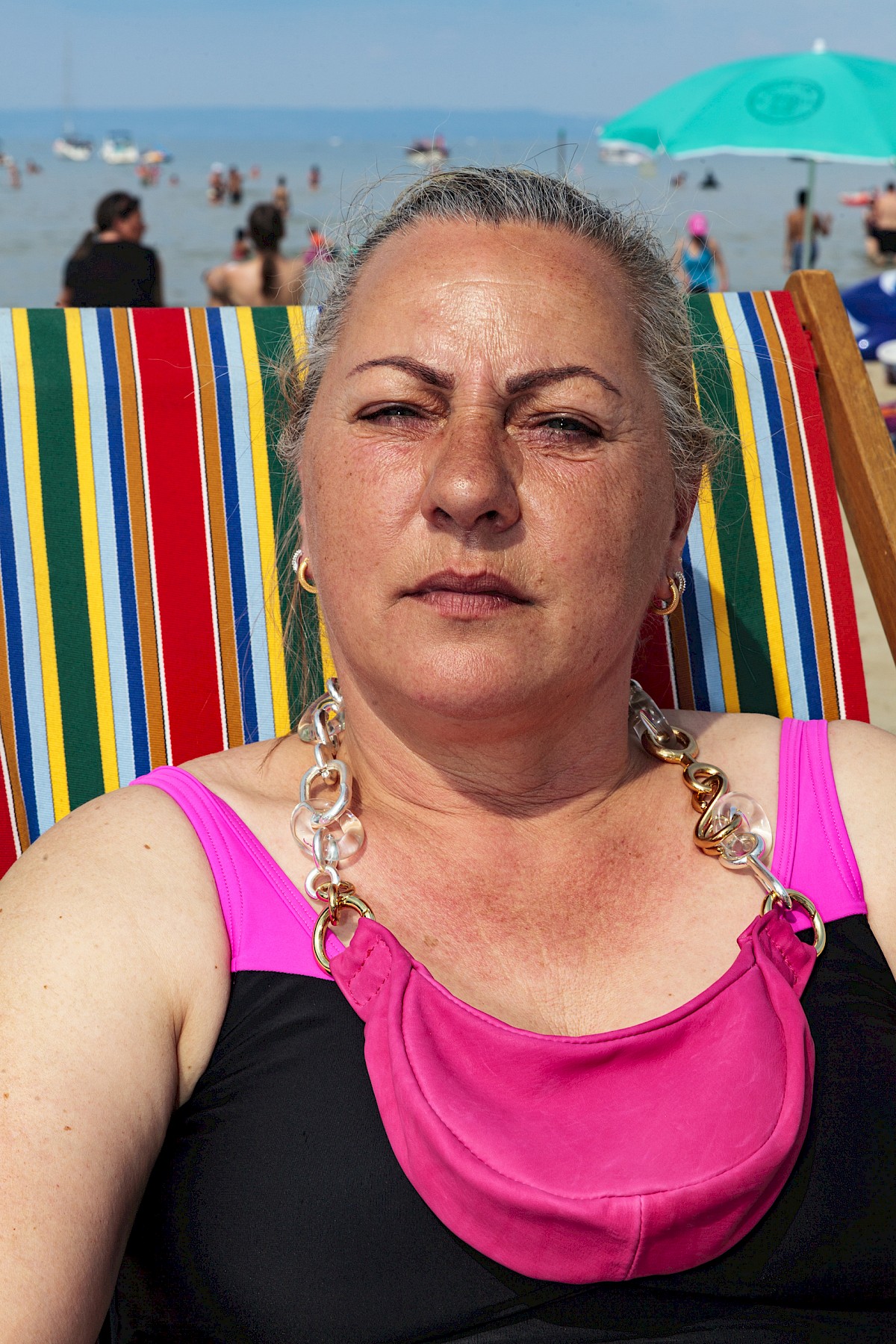

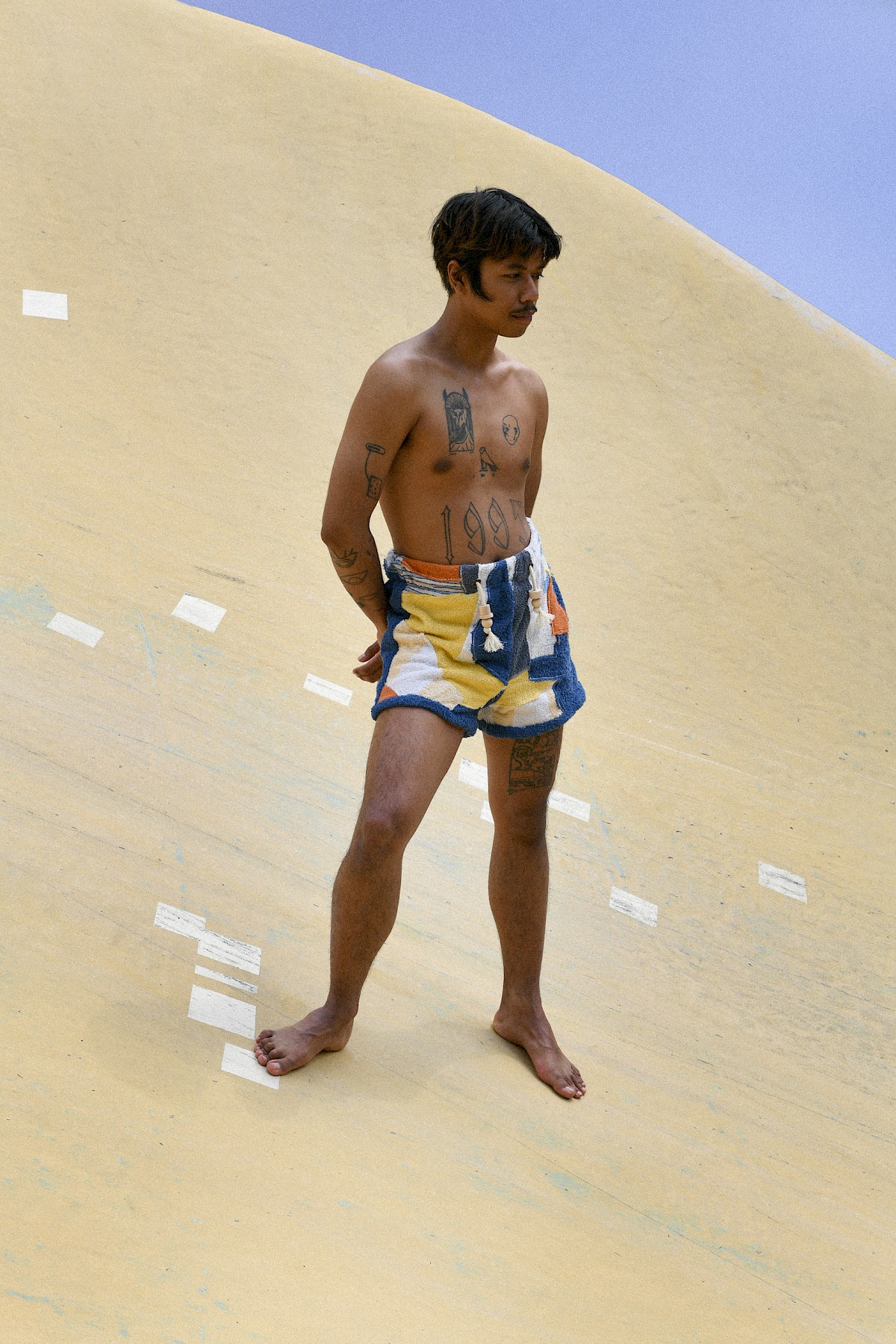
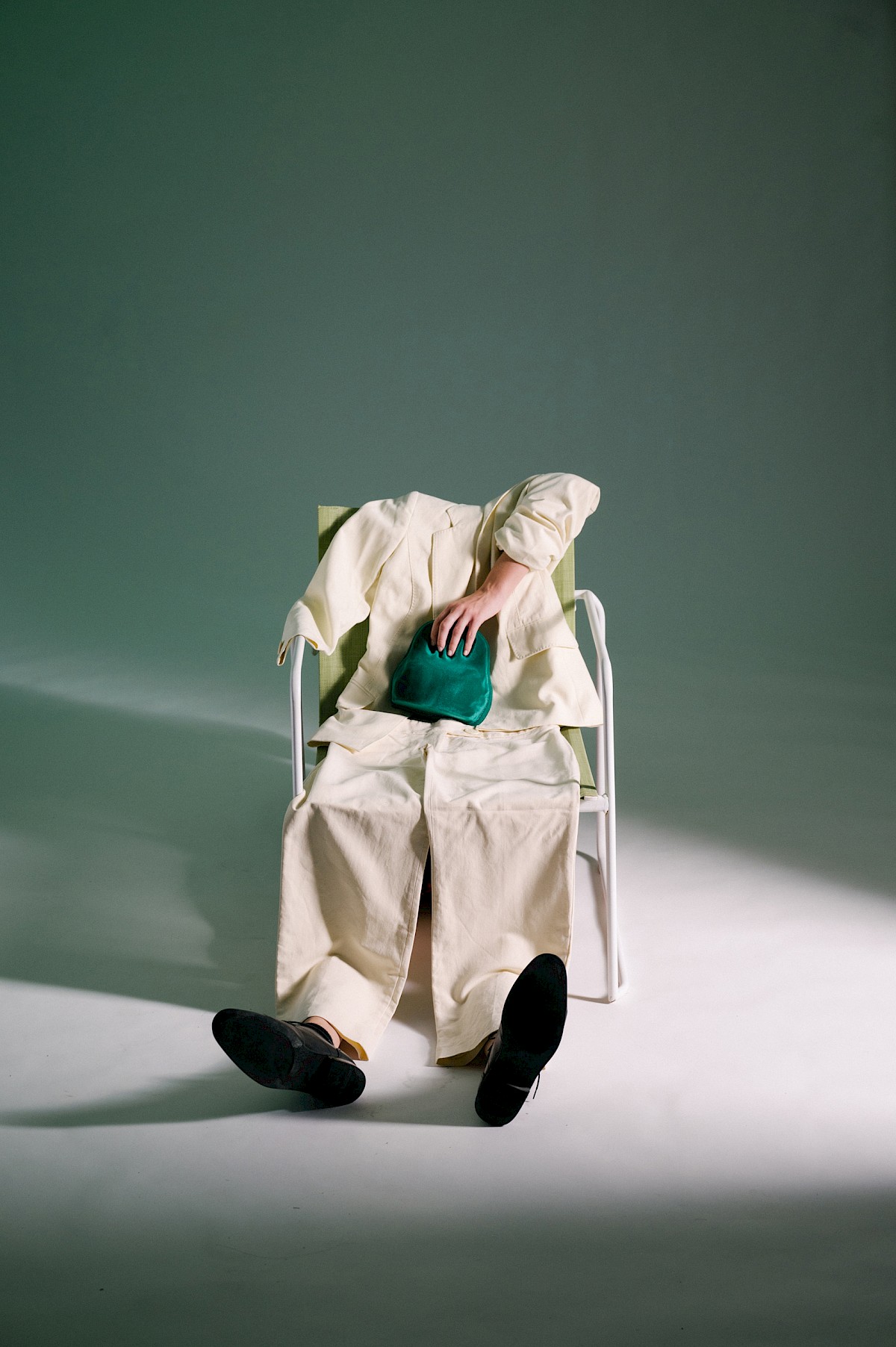
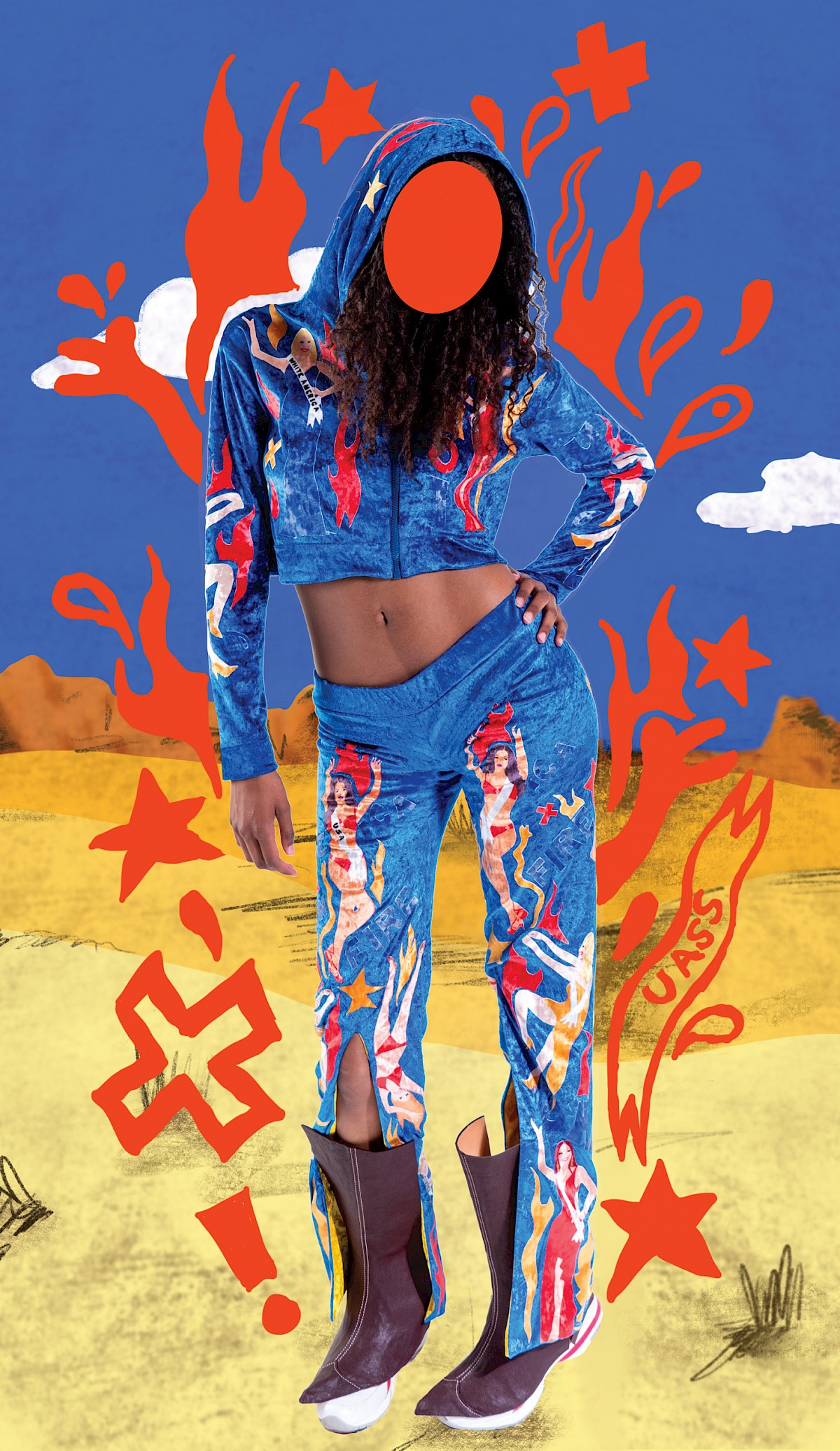
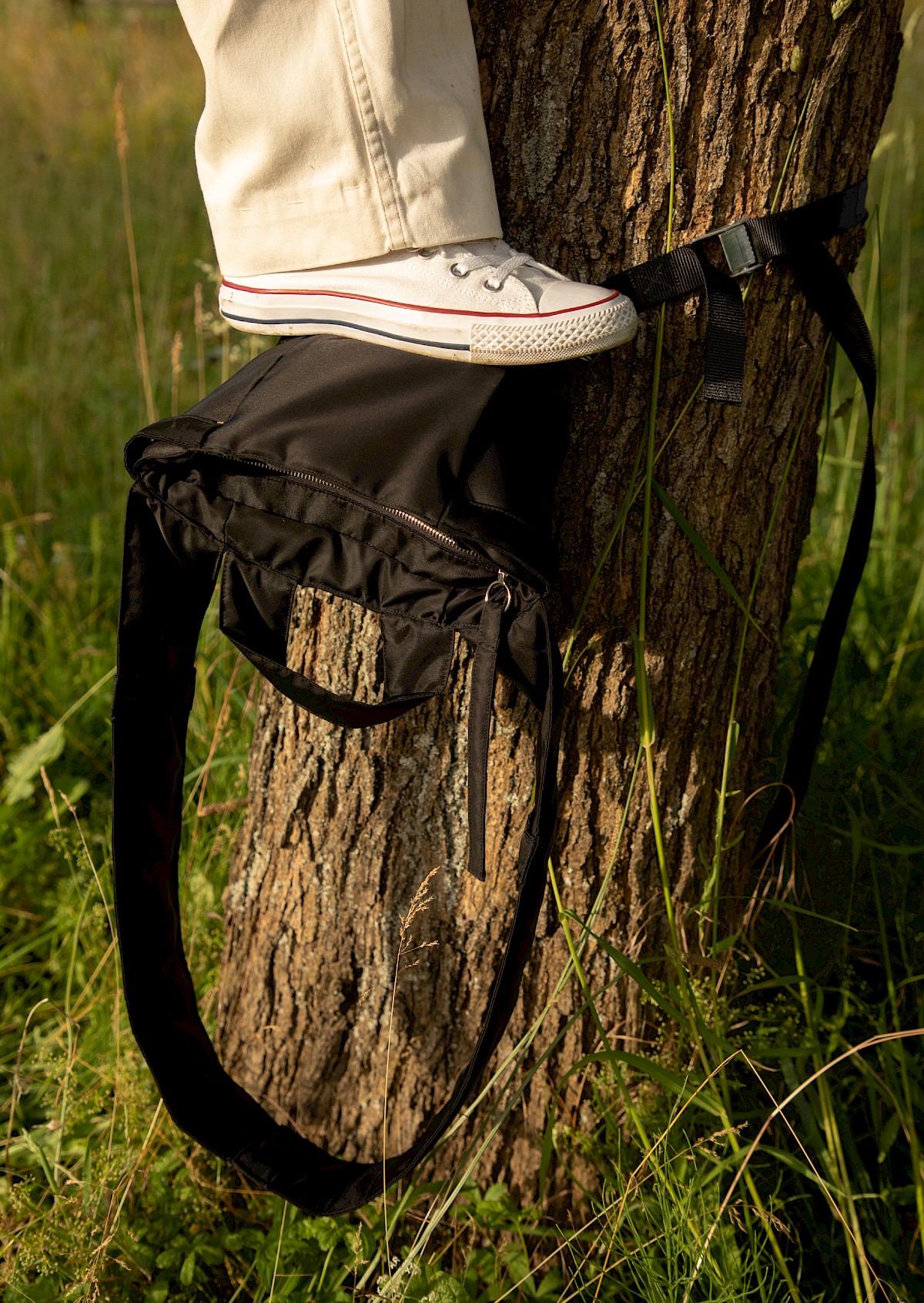
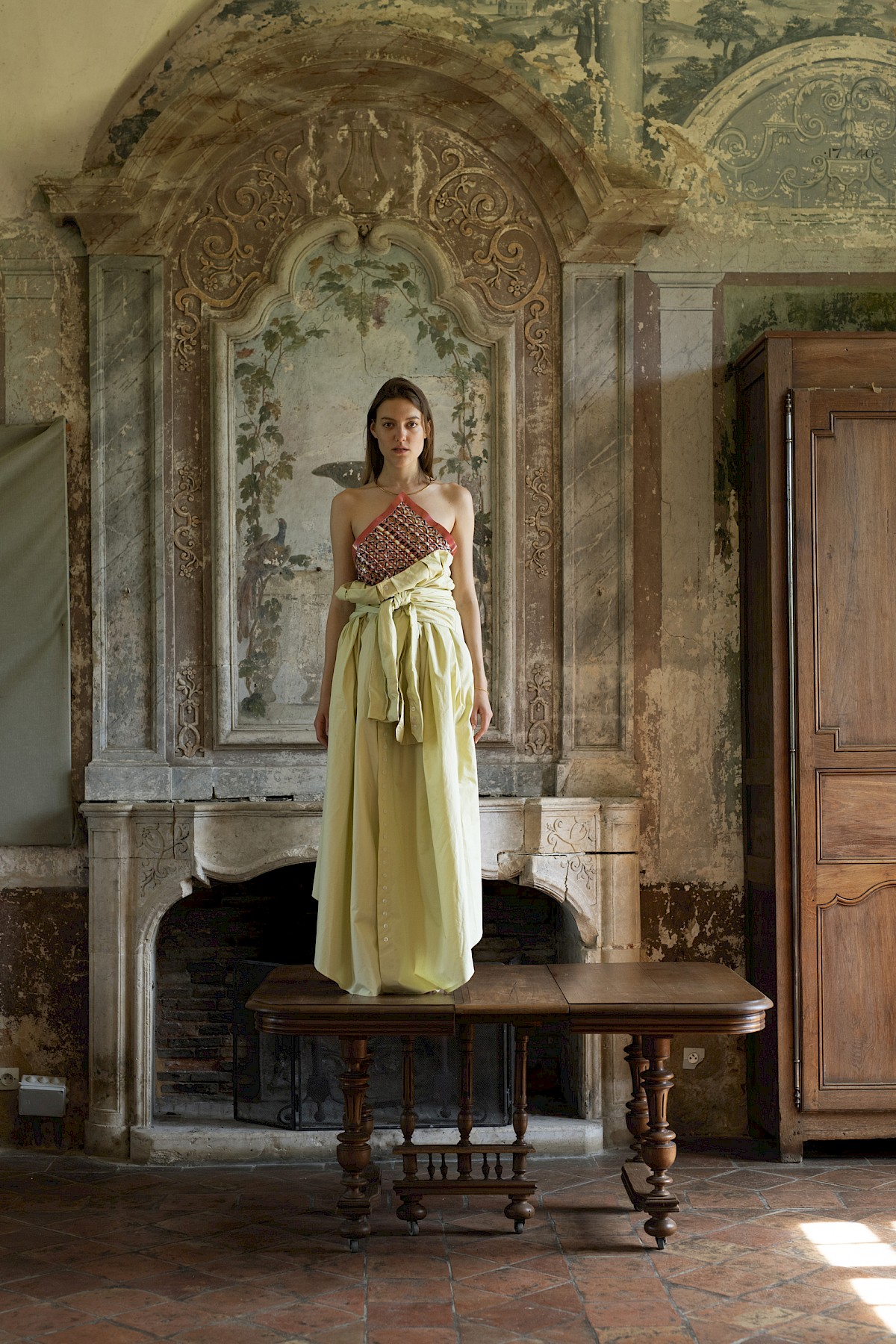
Collections Master 2021
2021 Master Collection
étudiant·e·x·s
students
Mélissa Café
Mellie Chartres
Sophie Fellay
Martin Guillet
Celeste Hay
Julia Hernandez Figueroa
Manon Melot
Bérénice Noël
Sandrine Joy Praz
Victor Salinier
Lora Sonney
Florian Henri Alexandre Wicki
professeur·e·x·e·s et intervenant·e·x·s
professors and guests tutors
Aude Fellay
Elizabeth Fischer
Jutta Klingel
Aya Noël
Christine Roësch
François Schaffter
Daniele Toneatti
Peter Wiesmann
assistant·e·x·s
Cyril de Froment
Madeline Ribeiro

